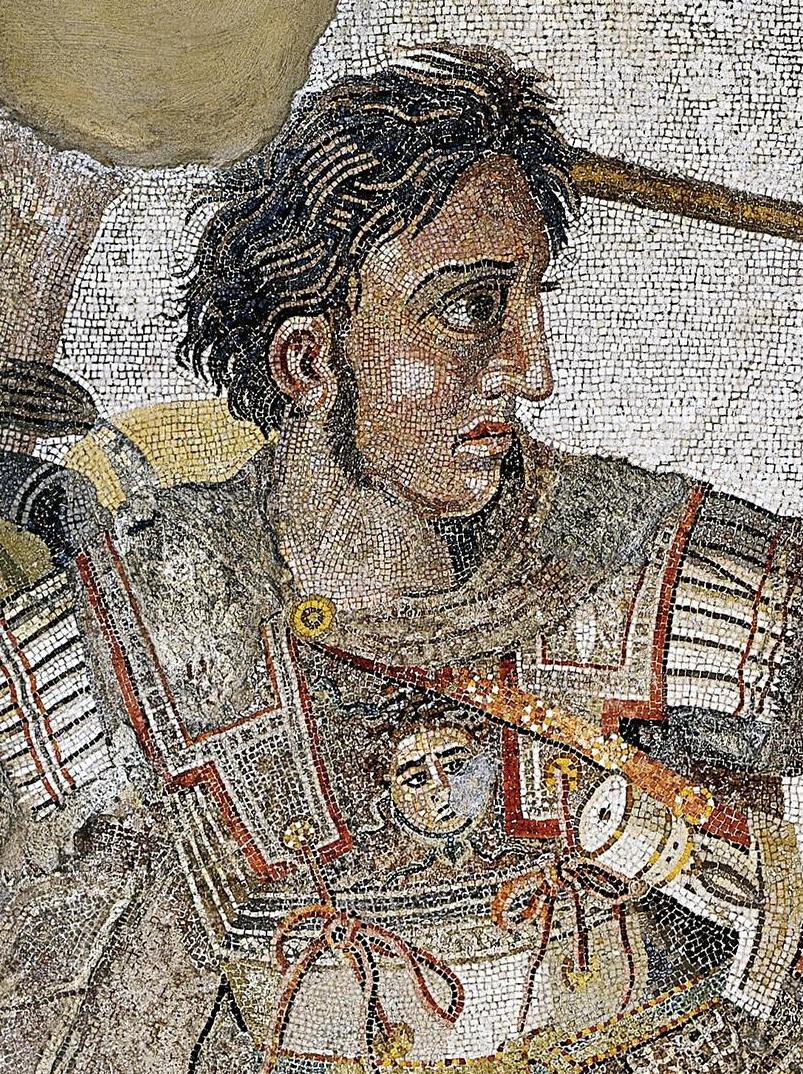Alexander the Great: The Conqueror Who Shaped the Ancient World

Few figures in history have achieved the legendary status of Alexander the Great. Born in 356 BC, Alexander rose to power as the king of Macedonia and went on to create one of the largest empires the world had ever seen by the time of his death in 323 BC. His military genius, political strategy, and unquenchable ambition have made him an enduring icon of conquest and leadership. Let’s explore the life, achievements, and legacy of this legendary figure who shaped the ancient world.
The Early Life of Alexander
Alexander was born to King Philip II of Macedonia and Queen Olympias in the ancient city of Pella. From a young age, Alexander was tutored by the famous philosopher Aristotle, who instilled in him a love of learning, philosophy, and culture. But it was his father, Philip, who prepared him for the art of war. Philip’s military reforms and creation of a formidable Macedonian army laid the foundation for Alexander’s future conquests.
At the age of 16, Alexander was already commanding forces in his father’s army. By 20, he had ascended to the throne after Philip’s assassination and quickly set out to consolidate his power in Greece. Within two years, he had launched his historic campaign against the Persian Empire, which would define his reign and shape the course of history.
The Conquests of Alexander the Great
Alexander’s military campaigns are the stuff of legend. In 334 BC, he crossed into Asia Minor with a small but elite army, beginning his war against the Persian Empire under King Darius III. One of his most famous battles, the Battle of Issus in 333 BC, saw Alexander’s vastly outnumbered forces defeat the Persian army, marking the beginning of the end for Darius and his empire.
As Alexander pushed deeper into Persian territory, he demonstrated both tactical brilliance and bold leadership. His ability to adapt to different battlefield conditions, combined with the disciplined Macedonian phalanx, made his army nearly unbeatable. By 331 BC, Alexander had taken the Persian capital of Persepolis, effectively toppling the empire and cementing his control over a vast swath of territory stretching from Greece to Egypt and modern-day Iran.
Advertise Here
The Founding of Alexandria
While Alexander is most often remembered for his military achievements, his impact on culture and society is equally significant. One of his greatest contributions was the founding of the city of Alexandria in Egypt. Established in 331 BC, Alexandria became a major center of learning, commerce, and culture. The city’s famous library and lighthouse made it one of the most important urban centers in the ancient world, and its influence continued long after Alexander’s death.
In fact, Alexander was a proponent of blending cultures and creating a unified world under his rule. This policy, known as “Hellenization,” saw Greek culture, language, and ideas spread throughout his empire, influencing the regions he conquered. This cultural fusion would have a lasting impact on the development of Western civilization.
The Legend of Alexander in Battle
Alexander’s military prowess was not just due to his strategic mind but also to his charismatic leadership. He often led his troops from the front, inspiring loyalty and fearlessness in his men. His personal courage became the stuff of legend, and stories of his exploits spread far and wide. Whether in the mountains of Afghanistan or the deserts of Egypt, Alexander’s name became synonymous with victory.
One of the key elements of his success was his innovative use of combined arms tactics, where he integrated infantry, cavalry, and siege equipment to devastating effect. His victories at battles like Gaugamela and the Siege of Tyre demonstrated his ability to adapt and innovate on the battlefield, making him one of history’s most successful military leaders.
Alexander the Great in Modern Pop Culture
Alexander’s legacy extends far beyond the ancient world. He has been immortalized in countless books, films, and video games. In the popular real-time strategy game Age of Empires II: Age of Kings, Alexander is featured as one of the campaign leaders, where players can relive his epic conquests and tactical brilliance. His presence in the game highlights the lasting fascination with his life and military achievements, making him a favorite figure for history enthusiasts and gamers alike.
His military tactics, charismatic leadership, and empire-building have inspired countless depictions in modern media, from historical dramas to documentaries. Alexander’s life continues to captivate the imagination, a testament to the profound mark he left on history.
The Death and Legacy of Alexander
At the height of his power, Alexander fell ill and died in 323 BC in the city of Babylon at the age of 32. His death left a power vacuum that resulted in the fragmentation of his empire among his generals, known as the Diadochi. Although his empire did not last long after his death, Alexander’s influence endured for centuries.
The spread of Hellenistic culture, the blending of Greek and Eastern traditions, and the founding of cities across the known world are all part of his lasting legacy. His life and conquests shaped the course of Western and Eastern history, influencing the development of future empires, from Rome to Byzantium.
Even today, Alexander the Great remains a symbol of ambition, leadership, and military genius. His ability to unite diverse cultures and create an empire that stretched across three continents made him one of the most remarkable figures in history.
Whether you’re studying his campaigns in a history book or leading his armies in Age of Kings, Alexander the Great’s legend lives on, inspiring future generations to learn from his extraordinary life.
Image See page for author, Public domain, via Wikimedia Commons
Another Ad Space

